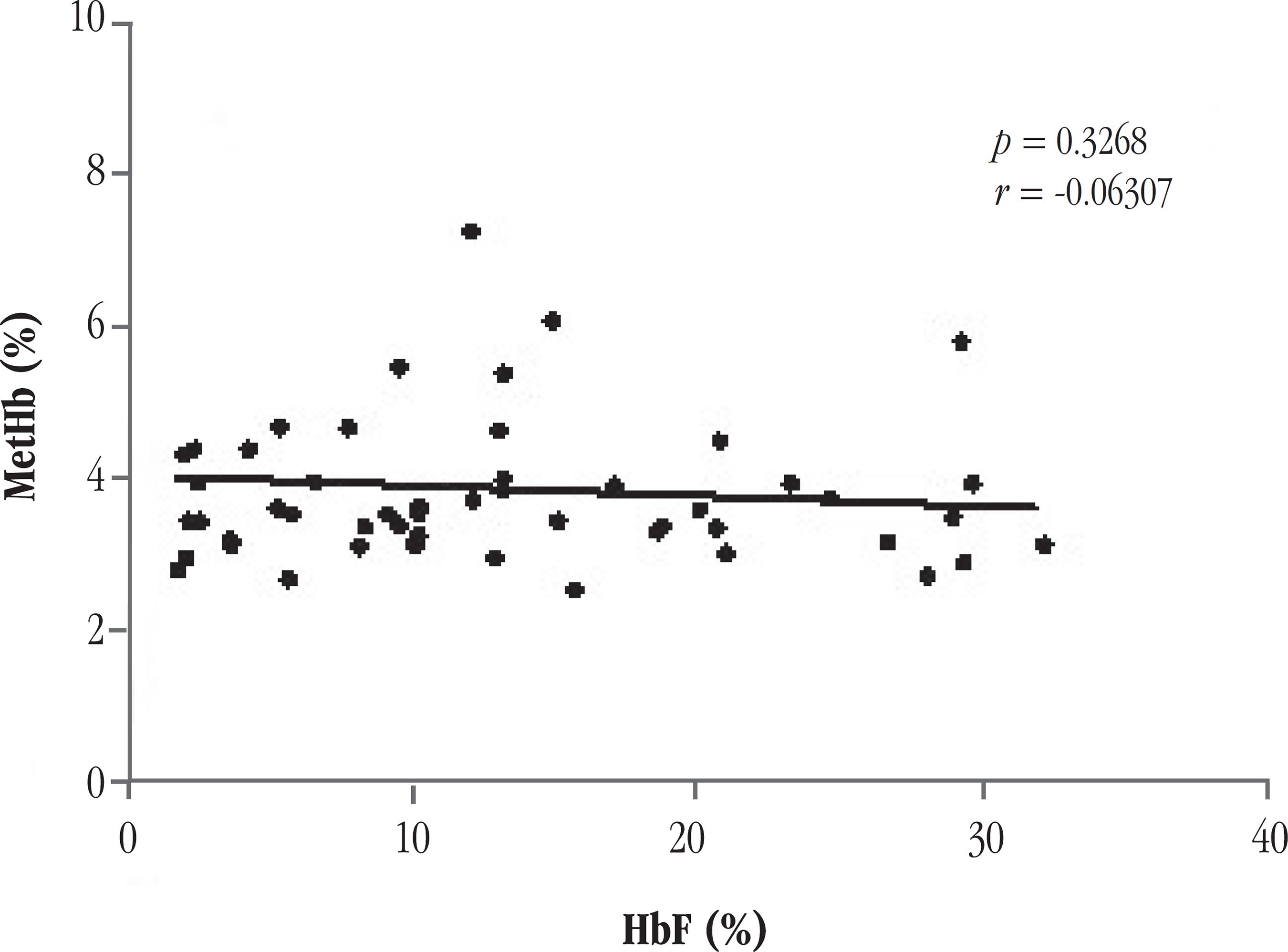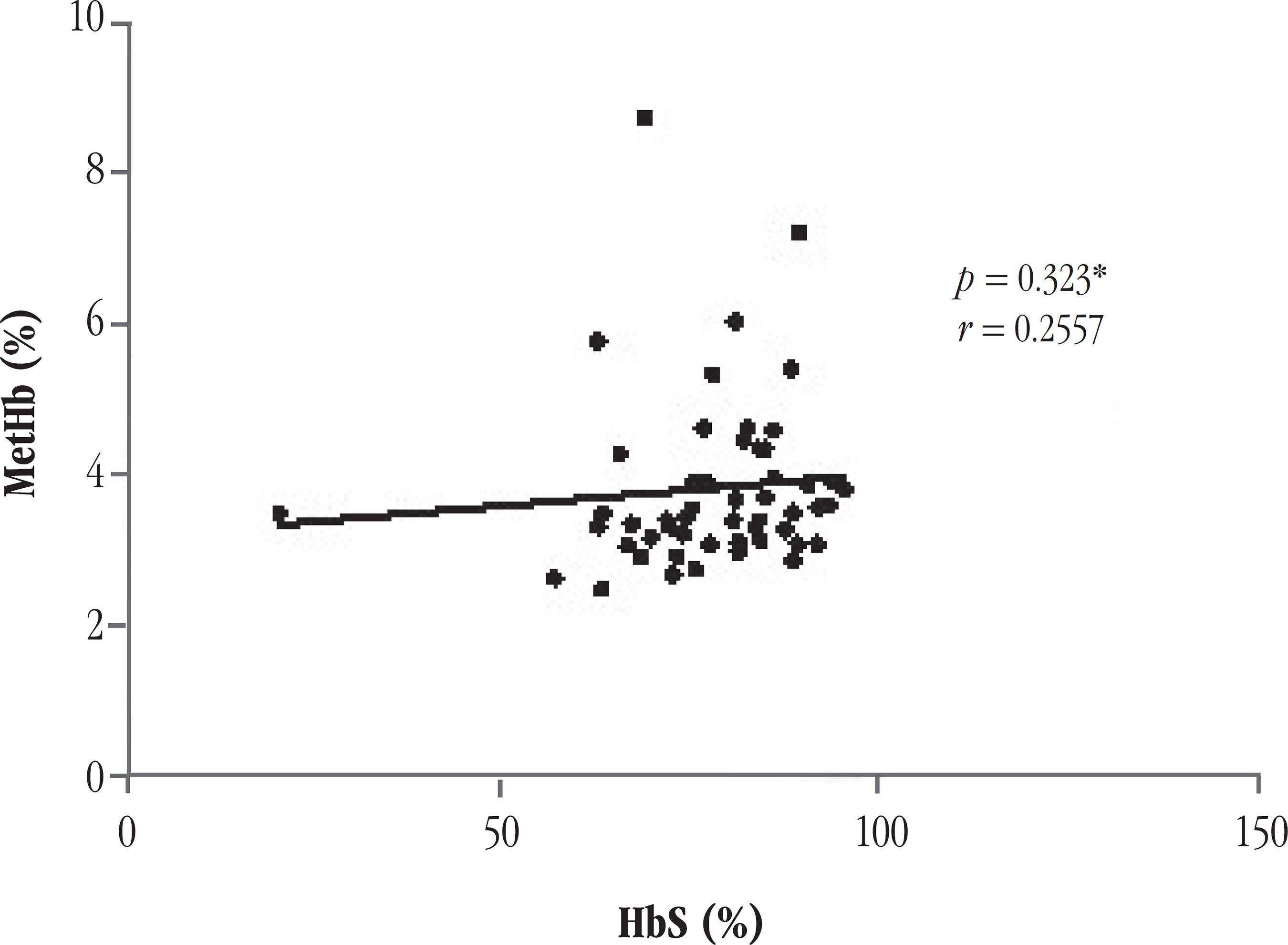Introduction:
Hemoglobin S (HbS) is unstable hemoglobin that easily oxidizes, causing methemoglobin (MetHb) increased production in patients with sickle-cell anemia (SCA).
Objectives:
To determine MetHb levels and the influence of hydroxyurea (HU) therapy on this marker in patients with SCA.
Materials and methods:
Blood samples from 53 patients with SCA at the steady-state, with and without HU therapy, and 30 healthy individuals were collected to evaluate MetHb levels. The MetHb measurement was performed by spectrophotometry. Complete blood count, HU measurements, and fetal hemoglobin (HbF) and HbS concentrations were taken from medical records.
Results:
MetHb levels were statically higher in patients with SCA when compared to control group (p < 0.001). There was no statistical difference in MetHb level between SCA patients, either using or not HU. We obtained a positive correlation between MetHb measurements and HbS concentration (r = 0.2557; p = 0.0323).
Conclusion:
HbS presence favored hemoglobin breaking down, and consequently increased MetHb production. Treatment with HU, however, did not influence the levels of this marker.
anemia; sickle-cell disease; methemoglobin; hydroxyurea




